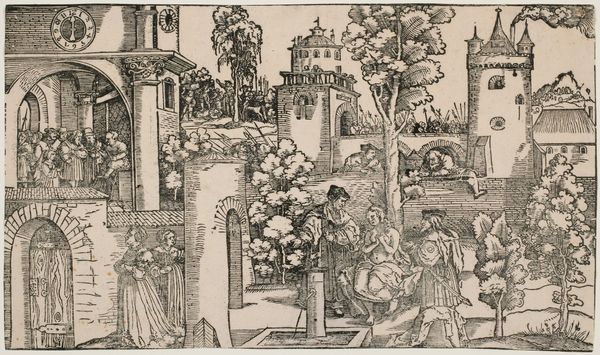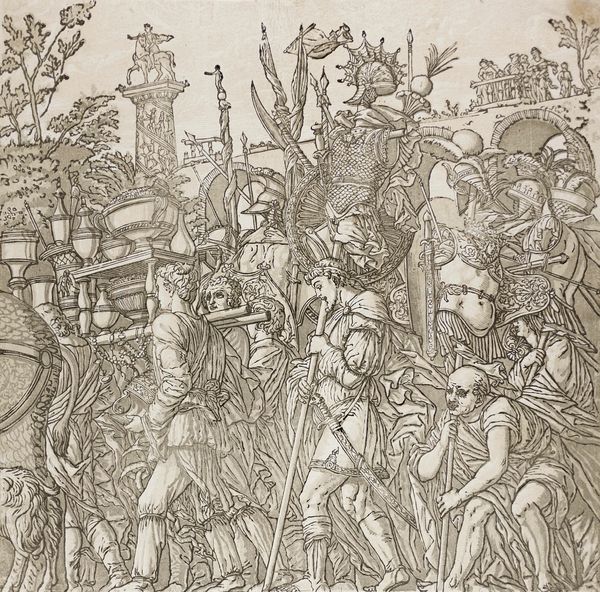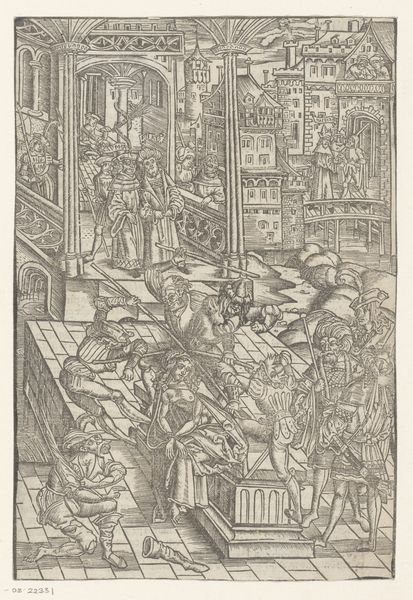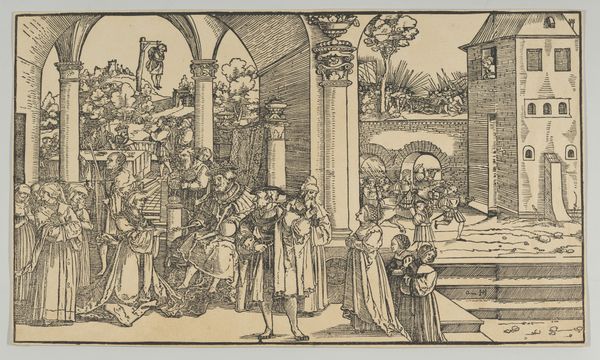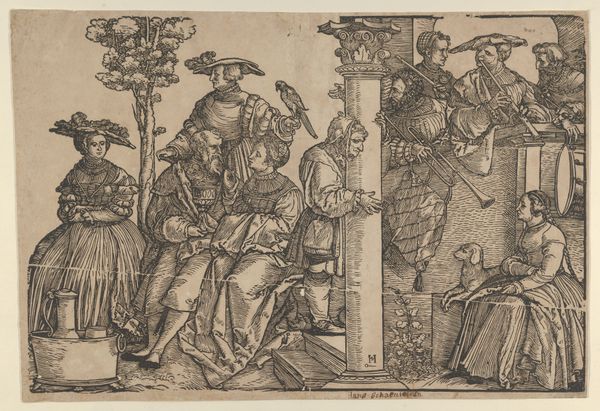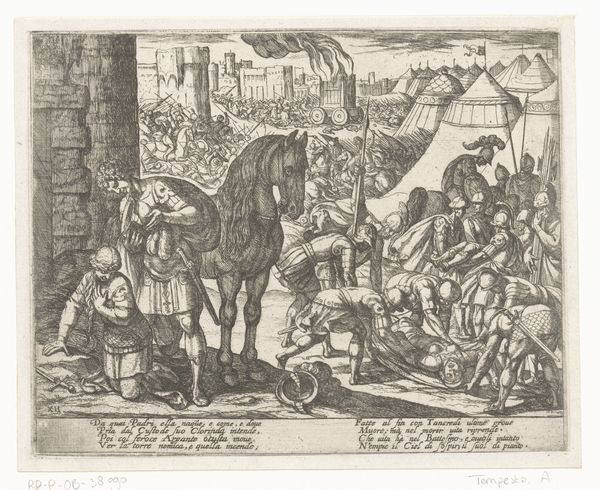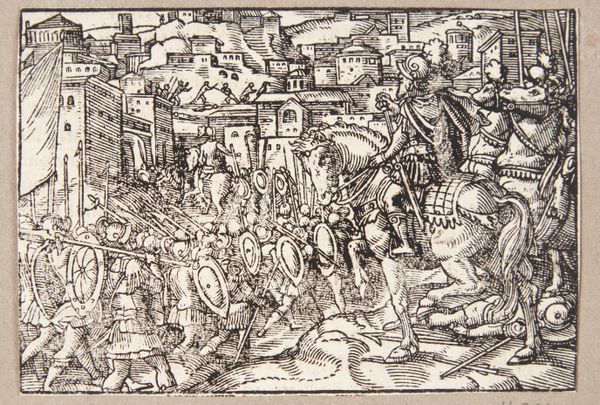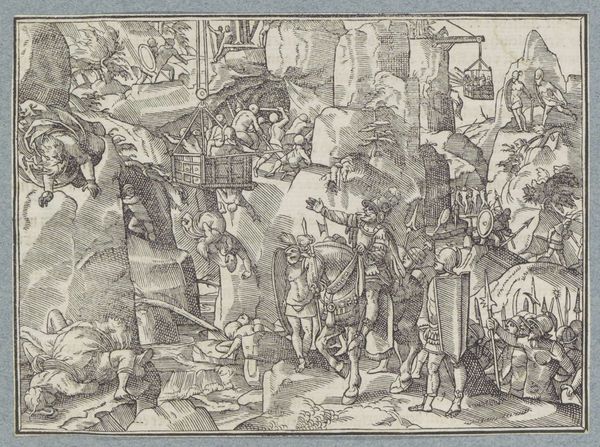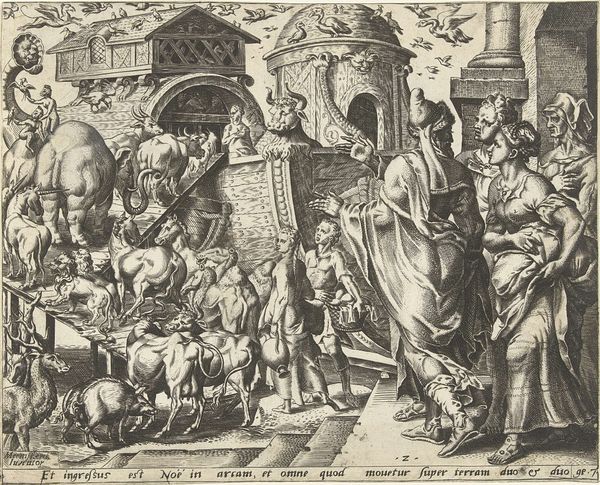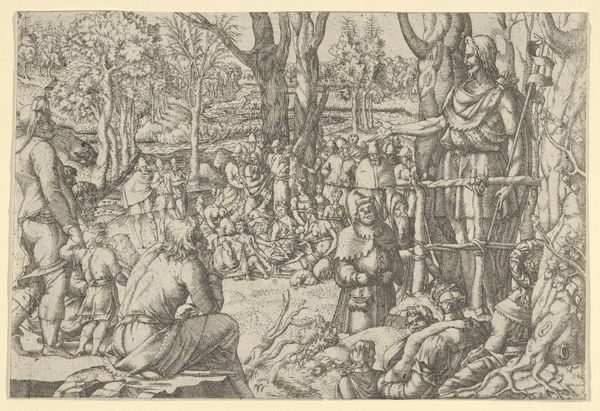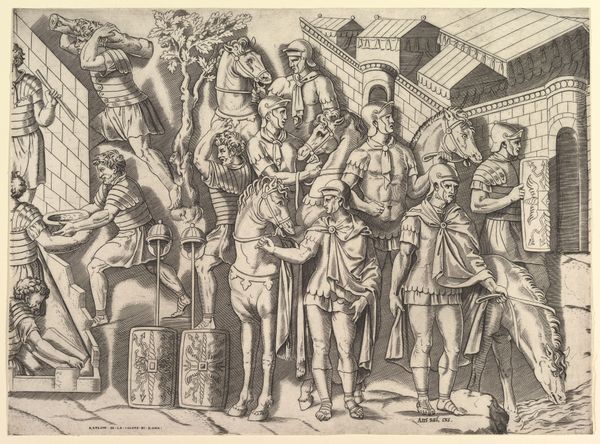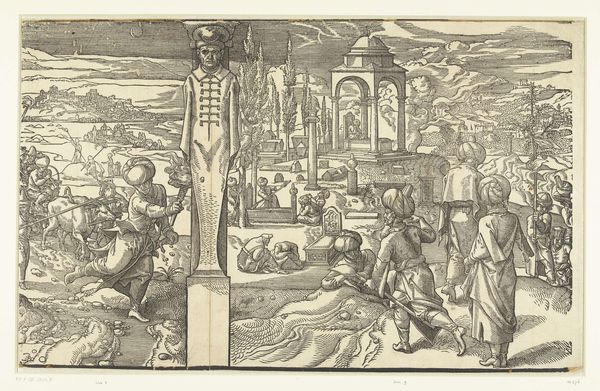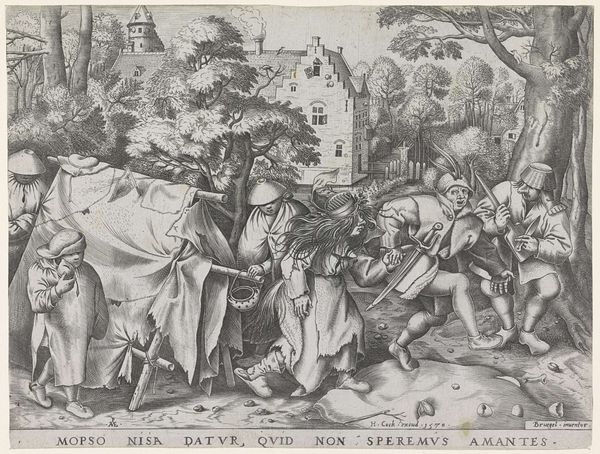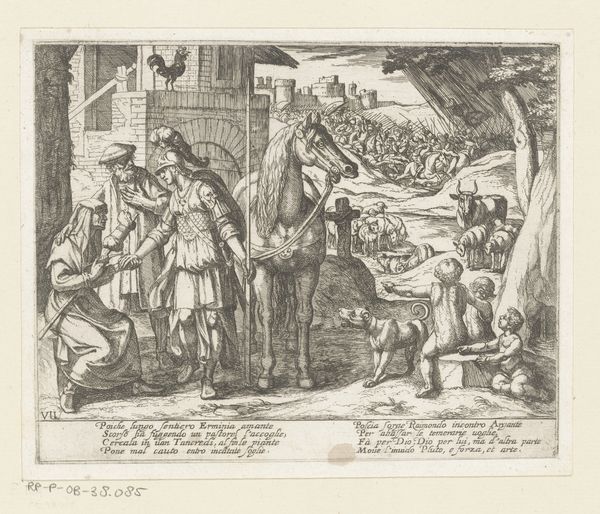
The Adoration of the Shepherds c. 1530 - 1540
0:00
0:00
print, engraving
# print
#
figuration
#
11_renaissance
#
history-painting
#
northern-renaissance
#
engraving
Dimensions: image: 32.8 x 51.7 cm (12 15/16 x 20 3/8 in.) sheet: 34.1 x 52.2 cm (13 7/16 x 20 9/16 in.)
Copyright: National Gallery of Art: CC0 1.0
The Master of the Adoration of the Shepherds made this image with engraving, a printmaking technique, sometime between 1460 and 1580. The artist used a tool called a burin to incise lines into a copper plate, which would then be inked and printed. The appearance of this print is directly linked to the demanding and time-consuming nature of engraving. Notice the precise, parallel lines that create tone and shadow, achieved by pushing the burin through the metal with great force. Engraving was a highly skilled craft, often associated with the production of luxury goods. Prints like these made art more accessible, but the labor and expertise required meant that they remained valuable objects. The dense composition and intricate details, combined with the inherent qualities of line engraving, invite close looking and careful study. By considering the craft of printmaking, we can better appreciate the artistry and effort that went into creating this image, challenging any separation between fine art and craft.
Comments
No comments
Be the first to comment and join the conversation on the ultimate creative platform.
